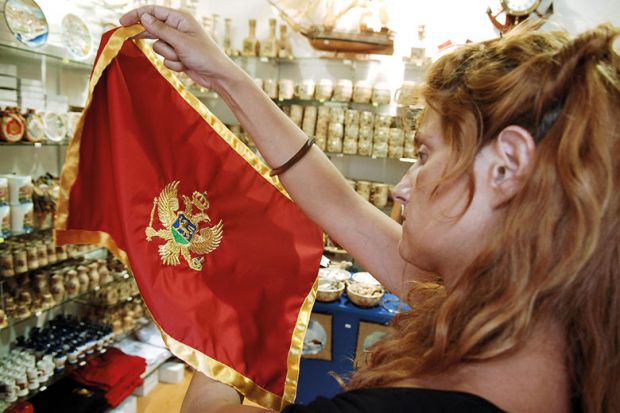A drive to legislate against research misconduct and student cheating across Europe is under way, with the Balkans in the lead.
Last month, Montenegro became one of the first countries to pass legislation outlawing not only plagiarism, but also the donation of authorship, the fabrication of research results and a variety of ways to cheat in student exams.
The law is in part the fruit of the Ethics, Transparency and Integrity in Education initiative run by the Council of Europe, a human rights body that includes practically every country on the continent.
Dennis Farrington, a visiting fellow at the Oxford Centre for Higher Education Policy Studies, who has worked as a consultant for the Council of Europe for the past 25 years, said that other countries were likely to consider adopting similar rules.
“There’s pressure coming from all over the place for some new legal structures [to tackle academic misconduct], and Montenegro is in the lead,” Dr Farrington said.
The Balkans is the birthplace of the fresh move against academic misconduct, Dr Farrington said, because the wars of the 1990s meant that universities were long cut off from the outside world and an “incestuous” culture of academics signing off each other’s work developed.
In Montenegro, which with a population of just over 600,000 has one public and two private universities, academic misconduct is a “well-known phenomenon” and was sometimes seen as a relatively inconsequential offence, Dr Farrington said. However, a new generation educated after 2000 has emerged with a different mindset.
But Montenegro had not made its plagiarism law retrospective, meaning only misconduct in new publications will fall under its remit. “This was a huge can of worms that they decided they didn’t want to open,” Dr Farrington said.
Outside the Western Balkans, Dr Farrington has also helped the Armenian government to draft a law tackling plagiarism, fake universities and “academic integrity in its widest extent”. In return for state funding, universities have had to sign up to a code of conduct.
Meanwhile, Kosovo has drafted a similar law, with universities having to make progress reports to the government.
Last year, Northern Macedonia also required universities to adopt an ethical code, and appoint a senior figure to receive misconduct complaints.
Serbia, on the other hand, has decided it can tackle academic misconduct through existing laws.
Also involved is the International Institute for Research and Action on Academic Fraud and Plagiarism, created in 2016 and affiliated with the University of Geneva, which has coached University of Montenegro staff to better understand plagiarism, explained Michelle Bergadaa, the institute’s chair. Independent assessors had been sent in to speak to students, researchers and managers to check on progress, she said.
But it was “foolish” to think academic misconduct could be tackled by the “autocratic formula” of new regulations, Professor Bergadaa warned. “The law always follows the change in society”, not the other way around, she said. It was “unclear” if Montenegro’s new law would solve integrity issues, she cautioned.
后记
Print headline: Montenegro leads the way in outlawing academic misconduct




